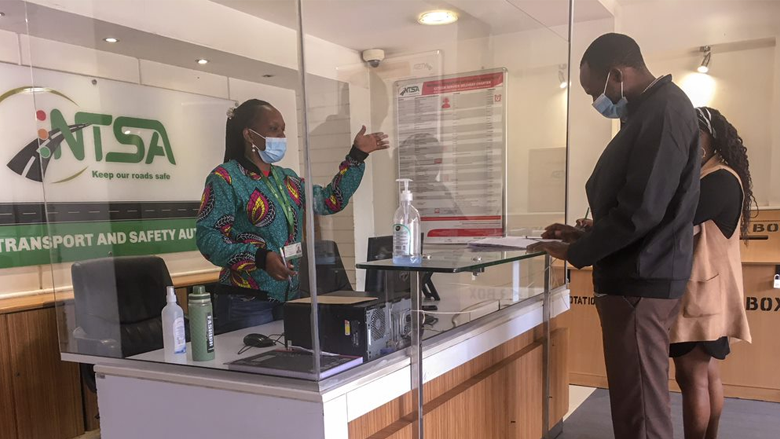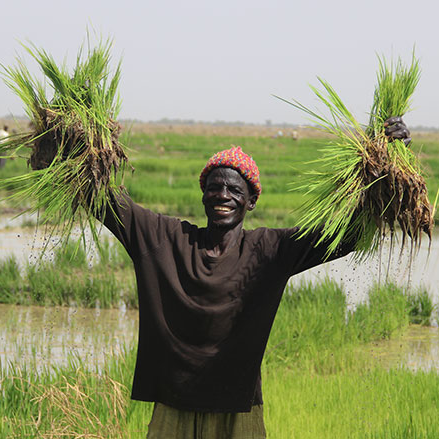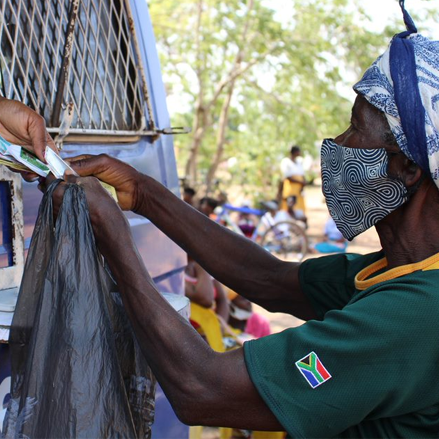

IDA Results: A Story of Outcomes
IDA’s Results Measurement System (RMS), which was introduced in 2002, allows IDA to measure its role in helping countries grow and reduce poverty.

20 Stories on the Road to IDA20
From Afghanistan to Zambia, these 20 stories tell the journey of women, men, and their communities making a difference and building the foundation for a better future.

#IDAWorks for Africa
22 powerful results stories illustrate IDA’s impact on families, national economies, and development across African countries.
IDA20 Replenishment
The World Bank launched an early twentieth replenishment process of the International Development Association (IDA), aiming to support countries in their recovery from the COVID-19 crisis and transition to green, resilient, and inclusive development. Under the theme “Building Back Better from the Crisis: Towards a Green, Resilient and Inclusive Future,” the IDA20 replenishment process will be informed by IDA19 progress as well as the World Bank’s mission and COVID-19 response. The IDA20 will maintain the four IDA19 special themes of climate change; fragility, conflict and violence; gender; and jobs and economic transformation; and introduce human capital as the fifth special theme.
Featured
Empowering Girls and Women in Côte d'Ivoire and Across the Sahel
Investing in girls’ education and keeping girls in school are critical first steps in building a country’s human capital and opening up opportunities for women in the Sahel. The IDA-supported Sahel Women’s Empowerment and Demographic Dividend project (SWEDD) aims to empower women and adolescent girls and increase their access to quality education and reproductive, child, and maternal health services.
Responding to COVID-19 Across the Horn of Africa
The IDA-supported Development Response to Displacement Impacts Project (DRDIP), which aims to improve access to basic social services, expand economic opportunities, and enhance environmental management for communities hosting refugees, is shifting its focus in response to the COVID-19 crisis.
Strengthening Epidemic Preparedness and Response in West and Central Africa ...
The IDA-supported Regional Disease Surveillance Systems Enhancement (REDISSE) Program was launched in 2016 to help Benin, Burkina Faso, Cabo Verde, Cote d’Ivoire, The Gambia, Ghana, Guinea, Guinea-Bissau, Liberia, Mali, Mauritania, Niger, Nigeria, Senegal, Sierra Leone, and Togo respond to the challenges created by the Ebola outbreak and better protect against epidemic threats. Now, REDISSE has strongly positioned these countries as they face yet another health crisis—the global COVID-19 pandemic.
Strengthening Recovery and Peacebuilding in North-East Nigeria
The violent attacks carried out by Boko Haram since 2009 have left deep scars for the 15 million people that call the region of North-East Nigeria home. Some 20,00 people have died, and 2.2 million people have been forcibly displaced by the conflict. About 70 percent of those displaced are hosted in the states of Borno, Adamawa and Yobe. Between 2017-2020, 687 infrastructure rehabilitation projects have been initiated, and the construction and repair of nearly 180 kilometers of roads and three bridges are underway. Over 105,000 beneficiaries (of which 49 percent are women) have gained access to rehabilitated roads, hospitals, schools, water, sanitation and hygiene facilities, and public buildings. The project has also responded to the trauma of conflict and displacement, with ...
Prioritizing the Poorest and Most Vulnerable in West Africa
The IDA-supported WURI Program is helping to build the foundational identification systems needed across Benin, Burkina Faso, Côte d’Ivoire, Guinea, Niger, and Togo to facilitate access to services for millions of people. Informal workers represent 80 percent of total employment in this part of the world—90 percent of whom are women—and they often fall through the cracks of existing social protection programs. In times of crisis, the program aids countries in quickly scaling up social protection programs through flexible platforms, including providing emergency support to informal workers.
Helping Young People Increase their Earning Potential in Liberia
A Liberia youth farming group in rural Lofa County that benefitted from the outh Opportunities Project (YOP) has been successful in its agriculture efforts, enabling it provide solar electrification for their small village. One member and young mother, Fatumata Bility, says she feels proud to be part of a group that worked hard to bring such development to her community.
Saving Lives with Face Masks Made in Post- Conflict Central African Republic
In the Central African Republic, where years of prolonged violence and conflict have ravaged the country’s health care system, an innovative approach is saving lives and putting people to work. As the global COVID-19 pandemic bore down on the country, the government made the difficult decision to mandate the use of facial masks. Like many countries, however, they were faced with a dearth of masks in local and international markets. The IDA supported LONDO project was able to quickly rise to the challenge, locally producing more than 2.4 million masks in record time.
Supporting Africa’s Sahel Pastoralists to Secure a Resilient Future
The IDA-financed Regional Sahel Pastoralism Support Project (PRAPS) supports countries of the Sahel—Burkina Faso, Chad, Mali, Mauritania, Niger, and Senegal. It helps to protect pastoral systems by improving resource management and animal health, facilitating access to markets, diversifying sources of income for pastoral households, and managing conflicts.
Fostering a New Generation of Scholars in Eastern & Southern Africa
IDA-supported Eastern & Southern Africa Higher Education Centers of Excellence (ACEII) project is designed to strengthen selected academic research centers to deliver quality post-graduate education and develop globally engaged and collaborative research capacity in the Eastern and Southern Africa region.
Videos

IDA: Improving Lives and Ensuring Sustainable Development Outcomes

In Rwanda, Ex-combatants Acquire New Skills and Hold Jobs

In Search of Greener Pastures: On the Road with Sahel’s Pastoralists

Supporting Families in Sudan for an Economic and Social Renewal

Alice’s Story: From Out of School Teenager to Aspiring Pastry Chef

Small Business Landing in Sub-Saharan Africa

West Africa: Power Across Borders
Highlights












